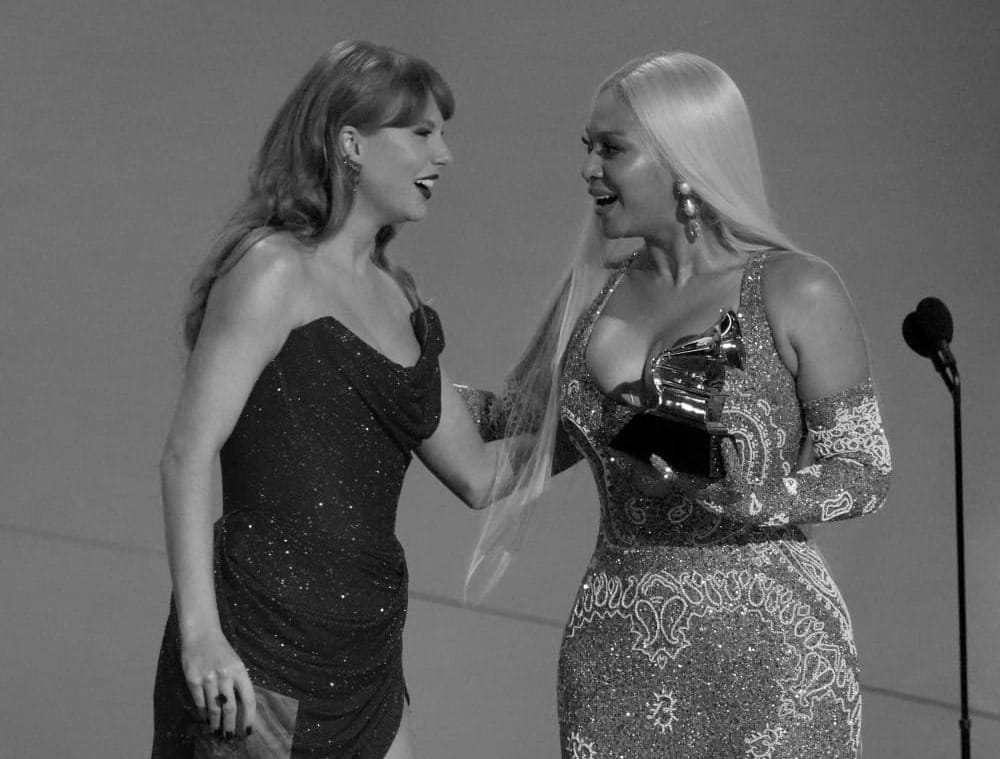One Victorious Beyoncé Does Not Equality Make
It’s a great story, but women aren’t really ruling the Grammys. When they’re nominated just one-third of the time, how could they?

"Wow, I really was not expecting this," a beaming Beyoncé said Sunday night as she addressed the audience in Los Angeles’ Crypto.com Arena after accepting her Grammy for Best Country Album.
Whether she was expecting it or not, it was—by all accounts—a very good night for the former Destiny’s Child singer who happens to be the most-awarded female artist of all time. She’s now won 35 Grammys and been nominated 99 times.
“Cowboy Carter,” the album for which Beyoncé won the country award this year, also scooped up Album of the Year—the Grammy’s top award—making her the first Black woman to win the honor in more than 25 years. (The last was Lauryn Hill with her album ‘The Miseducation of Lauryn Hill’ in 1999.) Beyoncé is also the first Black woman to win in the country category.
Other women won big on Sunday night, too.
Chappell Roan won Best New Artist; Amy Allen became the first woman to win the Songwriter of the Year award; Sabrina Carpenter secured the Best Pop Solo Performance prize as well as the prize for Best Pop Vocal Album. Charli xcx dominated in the Best Dance Pop Recording Category and Norah Jones took home one of the coveted gilded gramophone trophies.
It wasn’t surprising, therefore, that on Monday morning many headlines declared the 67th rendition of the awards to have been ruled by women. And sure, those wins are all worthy of celebration.
But it’s also more nuanced than that. Because even though Sunday night was good for women’s major wins, it wasn’t an exceptional night for women’s wins overall.
Let’s back up.
Who’s Actually Being Nominated
Last week, an in-depth new report published by the international audience strategy consultancy AKAS, shed a critical and crucial light on the reality of the recording industry, regardless of what the headlines might claim.
AKAS found that between 2017 and 2024, 8,580 nominations were made across 103 Grammy categories. But despite the popular narrative over that time period, 4 in 5 nominations and wins have been given to men, with women receiving just 1 in 5 nominations and wins. (These figures don’t take the most recent nominations and awards into account since the research was done prior to the 2025 Grammys.)
During 2024’s Grammys, AKAS found that across all 94 categories, just 1 in 4 nominees—or 24%—and 1 in 3 winners—or 32%—were women.
As part of its research, AKAS conducted a headline analysis of online articles published between 2017 and 2024, which revealed a positive bias within both specialist music and general news media when covering women and the Grammys. In other words, the headlines made it sound like women were better represented than they actually were.





